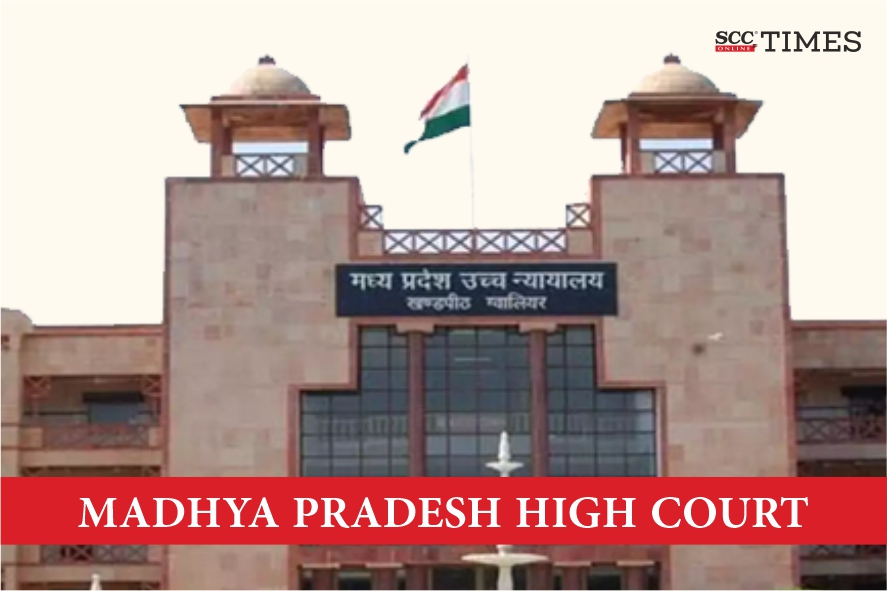Madhya Pradesh High Court: While deciding whether the property declared as an ancient and protected monument under the Ancient Monuments Preservation Act, 1904 can also be declared as waqf property under the Waqf Act, 1995 (Waqf Act), a single-judge bench of G.S. Ahluwalia, J., held that the property in concern cannot be reclassified as Wakf property without following the procedures under the Ancient Monuments Preservation Act, 1904.
In the instant matter, the petitioner filed a petition under Article 226 of the Constitution of India seeking to call for records from respondent No.3 and its subordinate authorities, quash the impugned order dated 19-07-2013 which declared certain properties as waqf properties and declare the property Khasra No.433, Village Emagird, District Burhanpur as the petitioner’s property. The property in question, which includes ancient monuments like the Tomb of Shah Shuja, Tomb of Nadir Shah, and Bibi Sahib’s Masjid, had been declared as protected under the Ancient Monuments Preservation Act, 1904 and this declaration was affirmed by subsequent notifications under the same Act. The CEO, M.P. Waqf Board, by an order dated 19-07-2013 declared these protected monuments as waqf property, which led to the current dispute. The main issue is whether the property declared as an ancient and protected monument under the Ancient Monuments Preservation Act can also be declared as waqf property under the Waqf Act.
The petitioner contended that the property in question, having been declared an ancient monument under the Ancient Monuments Preservation Act, cannot be reclassified as waqf property. It was contended that Section 11 of the Ancient Monuments Preservation Act mandates that the Commissioner retains guardianship of such properties unless relinquished as per Section 14 of the Waqf Act. The petitioner cited Karnataka Board of Wakf v. Government of India, (2004) 10 SCC 779 and contended that the Waqf Act cannot override the protections afforded by the Ancient Monuments Preservation Act. However, the respondents contended that since the property was declared as waqf property, thus the CEO’s order directing the petitioner to vacate was justified. It was contended that the impugned order under challenge is appealable, and the petitioner should have approached the Waqf Tribunal.
The Court noted that the property had been declared an ancient and protected monument under the Ancient Monuments Preservation Act and such designation places the property under the guardianship of the Commissioner, with conditions for its release specified in the Act. The Court found that there was no evidence showing that the Commissioner had relinquished guardianship over the property, nor was there any provision indicating that the notifications under Ancient Monuments Preservation Act can be nullified by later waqf notifications.
While referring to Karnataka Board of Wakf (Supra), the Court held that the government’s ownership and control over the property as an ancient monument could not be overridden by a subsequent waqf declaration. The Court stated that the Ancient Monuments Preservation Act takes precedence over the Waqf Act concerning properties declared as ancient monuments. The Court further held that the Waqf Board had no jurisdiction over the property already under guardianship as an ancient monument.
The Court held that the order dated 19-07-2013 by the CEO, M.P. Waqf Board, which sought to reclassify the property as waqf, was erroneous and lacked legal basis. The Court affirmed the property’s status as an ancient monument under the Ancient Monuments Preservation Act and rejected its classification as waqf property and hence, quashed and set aside the impugned order and declared the property in concern as not being waqf property and was to remain under the guardianship of the Central Government as per the Ancient Monuments Preservation Act.
[Archaeological Survey of India v. Chief Executive Officer, 2024 SCC OnLine MP 5093, Decided on 26-07-2024]
Advocates who appeared in this case :
Shri K.N. Pethia, Counsel for the Petitioner
Shri Ukarsh Agrawal, Counsel for the Respondent No. 1
Ms. Sabhyata Yadav, Counsel for the Respondent No. 2







